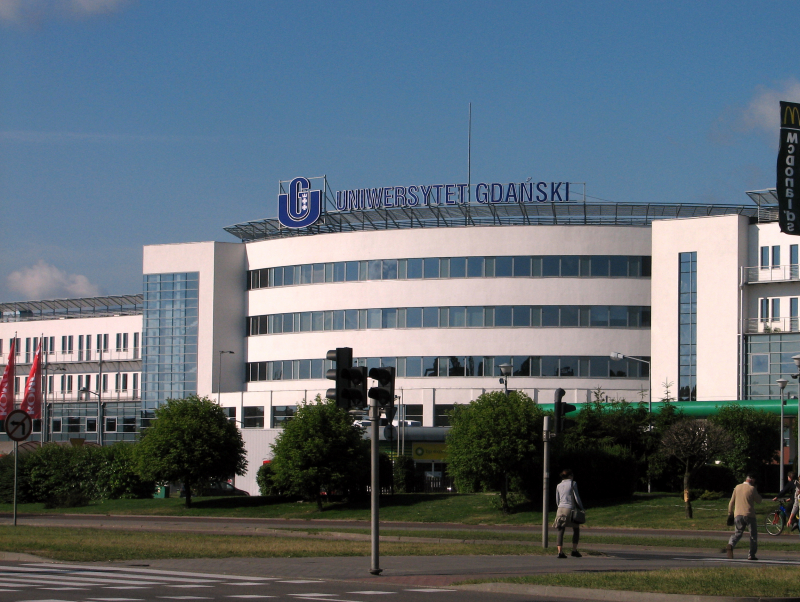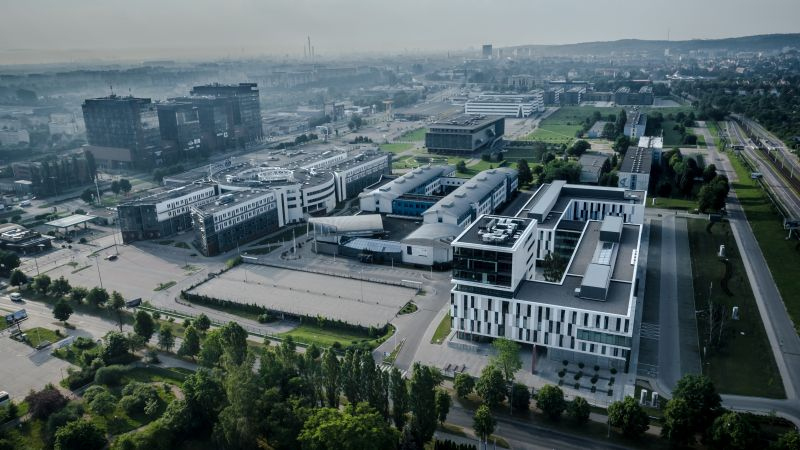University of Gdańsk

The University of Gdańsk (UG) was founded in 1970 as a result of a merger between the Higher Economics School in Sopot and the Higher Pedagogical School in Gdańsk. It later added the Higher Teacher Training School and has since grown to become the largest educational institution in the Pomerania region. UG has 11 faculties and is well-known throughout Poland for its studies in biology, biotechnology, economic sciences, law, psychology, pedagogy, quantum physics, oceanography, and chemistry. It also directs an important research center for the Kashubian language, a Pomeranian dialect of the Lechitic subgroup.
The University of Gdansk's buildings and scientific research stations span a large swath of the Polish coast, from Gdańsk to the Hel Penisula. The majority of its faculties are concentrated in the metropolitan areas of Gdańsk, Gdynia, and Sopot (known as Trójmiasto). The Gdańsk Oliwa Campus is home to the vast majority of students and faculty.
The marine facilities at the university, including the Hel Marine Station of the Institute of Oceanography, the Bird Migration Research Station, and the Biology Station, have an international reputation. The Hel Marine Station, known for its research into the protection of life in the Baltic Sea, works to restore threatened species such as the grey seal and the harbour porpoise. The University of Gdańsk has established connections with over 120 university-level institutions throughout Europe and the world. Donald Tusk, former Prime Minister of Poland and President of the European Council, is a notable alumni.
Website: https://en.ug.edu.pl/
















